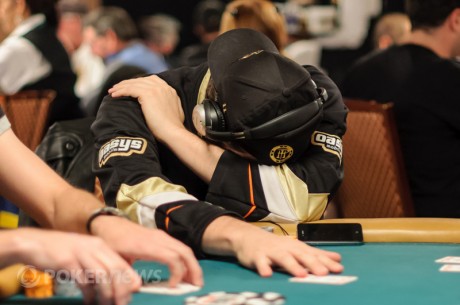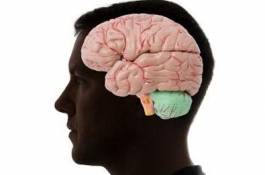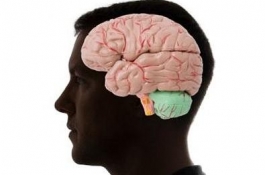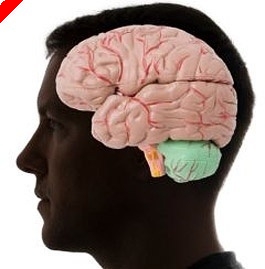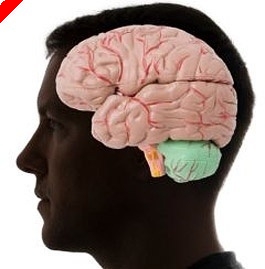The Poker Shrink, Vol 35 - Selective Attention
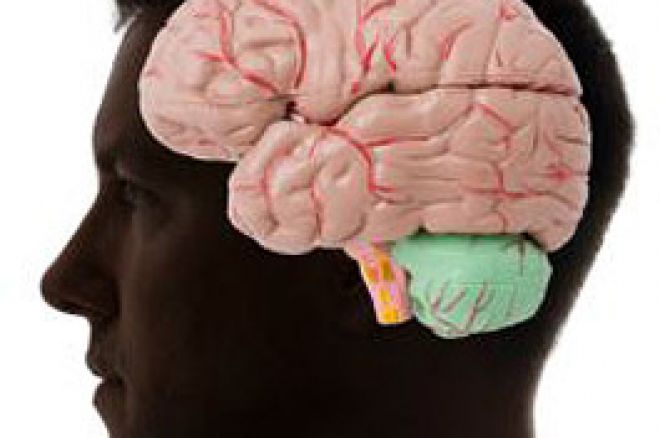
Selective attention is purposely focusing your conscious awareness onto a specific stimulus. Now that sounds an awful lot like just plain old paying attention. But take this test with me. Keep looking at the words on your computer screen; do not look away from the screen. Now in your peripheral vision there are some objects-what are they? Pictures on the wall? A sofa? The cat? Whatever they are just note them without looking away from these words. Now how about sounds? Traffic noises? Someone talking in the next room? Television or radio? Note these too. How do you feel? Tired? Hard chair? Sitting with your legs crossed too long? All of these sensations, you were not paying attention to when you began taking my little test. But you are now. Why? Because you were selectively paying attention to the content of this article. Thanks I appreciate your attention.
So now you are seated at a poker table in a big tournament room. The card room management makes some effort to minimize distractions; hopefully you are not near a bank of "Wheel of Fortune!" slot machines. The PA system is used only as needed. So outside distractions are kept to a minimum, except for the plasma screens with the NCAA tournament, the very attractive player in seat four (select the gender of your choice), and the hunger pangs in your stomach and �� where is that cocktail waitress??
You get the picture right? You are never without sensory input from potentially hundreds of sources. So you must pay selective attention just to walk to your table, nevermind play your "A" game.
Fine, fine! You say. Pay attention, don't get distracted. So what?
Well selective attention is more than just paying attention, it is a conscious action on your part to focus your attention on a certain aspect of the game and to exclude everything else but what involves the game. You focus on the tournament and in addition you selectively pay attention to a particular aspect of the game. Here is the best example I have ever experienced.
Some years ago I was doing tournament reporting and was working the entire schedule of a WSOP circuit event, I was reporting on 18 final tables in 18 days. I was fortunate to be working along side one of the best tournament directors in the business, Johnny Grooms. Each day Johnny and I would stand side-by-side while the final table played out, I would report on my laptop and Johnny ran the table and by the way also ran his floor staff for the other events and satellites. So neither of us was focused on the table at every moment.
We decided on day 15 to try a little selective attention experiment. We were going to watch the final table players for betting tells with their chips and hands. The idea was that we each would focus on the how the players put their chips into the pot as they bet, we would try to pick up any tells. The plan was not to compare notes until the second break, at two hours into the final table. What we were doing was paying selective attention to one particular aspect of the game.
At the second break there were six players remaining and we agreed on five of our reads.
Seat one: Always placed strong bets in the pot and always tossed bluffs. This is the most common chip tell.
Seat two: This was the only professional at the table and we both agreed he put his chips in the pot exactly the same way, every single time he bet.
Seat three: This player would always place his chips in the pot but if he was bluffing or on a draw, he would count them out into piles of five. When he had a made hand he just put in a stack.
Seat four: Another player who places chips with the nuts and tosses them with the bluff. A very easy read because he also talked when he was bluffing and was quiet when he had a made hand.
Seat five: Our only disagreement. I thought this guy was just too erratic to be read for anything. Johnny felt he tossed his chips and made his bet more quickly when he had a hand. Johnny was right; once I had his read the player did indeed act fast and toss chips with good hands.
Seat six: This guy fumbled, dropped, miscounted and generally acted like he had never played a tournament before in his life. We found out later, when he busted in 3rd place, that he had never played a tournament before in his life.
No one at the table had made these reads or seats one and four would have busted out several times. But wouldn't you have liked being at this table with these reads. They call it selective attention; try it next time you are at a table.




